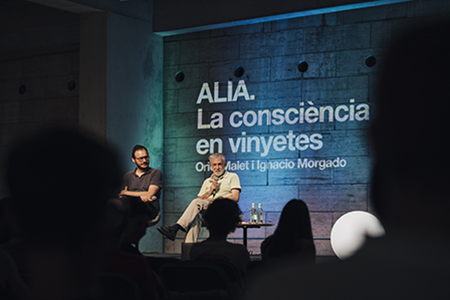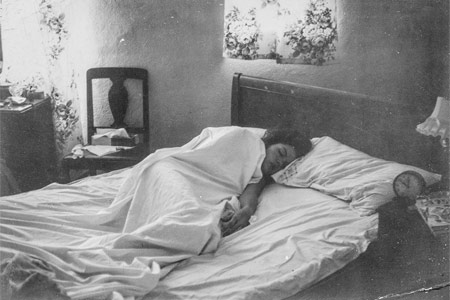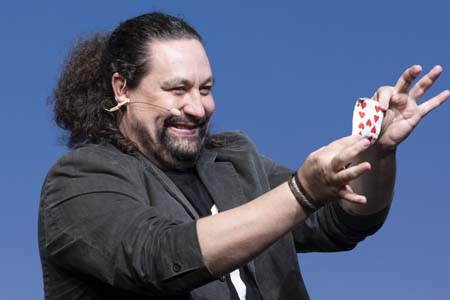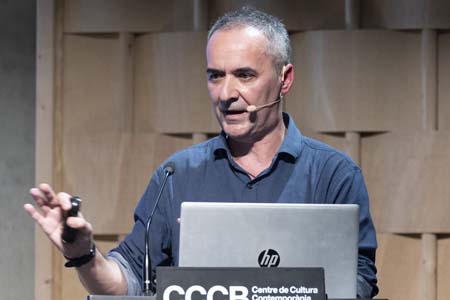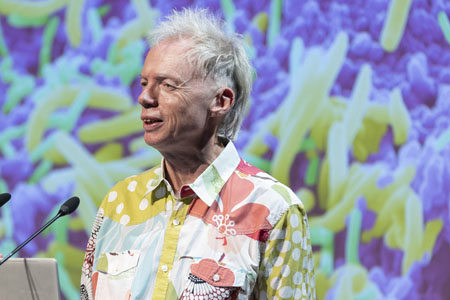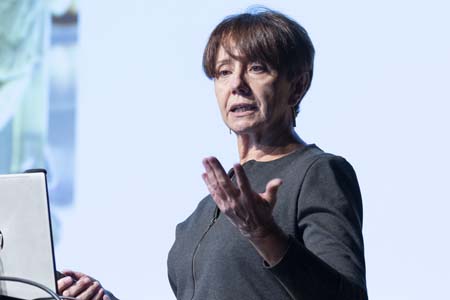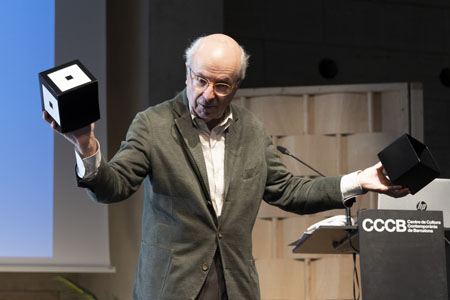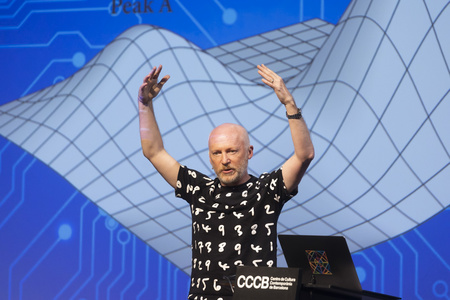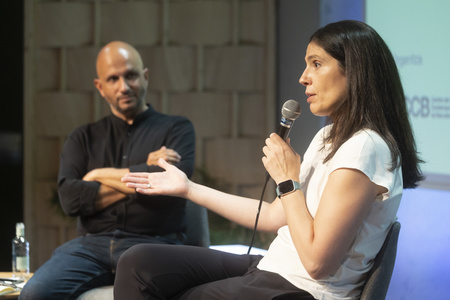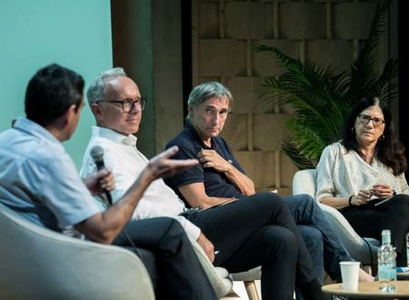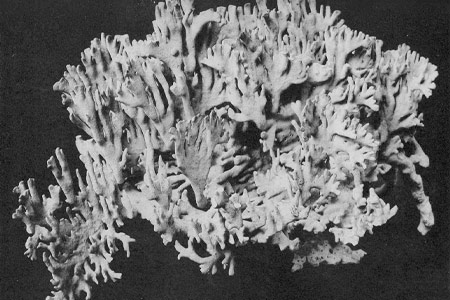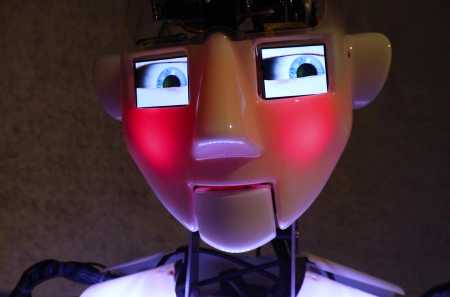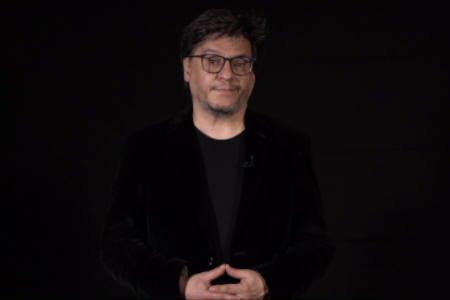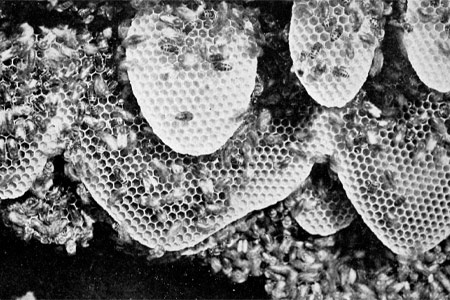Brain(s)
The human brain is the most complex object we know of and the one that raises most questions in the fields of both science and philosophy. "Brain(s)" looks at how, throughout history, art, science, and philosophy have studied and represented this fascinating organ.
Closing party "ALIA: Consciousness in comic strips"
We descover the comic about consciousness
Closing party of the project "ALIA.La conciencia en viñetas", which relates scientific dissemination with artistic creation, with a conversation between the neuroscientist Ignacio Morgado and the illustrator Oriol Malet, and the sharing of the collaborative informative comic resulting ...
When The Brain Sleeps
Marta Consuegra
Advances in neuroscience have improved our understanding of sleep and its importance for physical and mental functioning.
Anil Seth: “Reality is a controlled hallucination”
With his tireless activity as a science writer and theories such as the predictions our brain makes when it perceives reality and configures our experience of it, the British neuroscientist Anil Seth has become one of the most representative and authoritative voices in the study of consciousness. He is the author of numerous important articles and of a best-selling book in which he tries to explain the meaning of what it feels like to be ourselves: he doesn’t talk about identity, but encourages us to be aware of the privilege of being an organism that is alive and knows it. ...
Jordi Camí, Luis Martínez Otero and Miguel Ángel Gea
How do we perceive reality?
The human being is a predictive machine dedicated to minimizing discrepancies between what we expect and what actually happens. For this very reason, surprise is the common way the organism reacts when a prediction error is produced. Combining magic with scientific dissemination and philosophical ...
What if Your Mood Depends on the Bacteria in Your Gut?
Cristina Sáez
The gut microbiota plays a key role in this continuous dialogue between the gut and the brain.
Luis Martínez Otero
How do we make moral decisions?
The most recent results show that both visual and moral decisions use the same neural mechanisms: we always see and decide depending on the context. What does this new evidence tell us about the functioning and evolution of the brain? The neuroscientist Luis Martínez Otero talks about ...
Andy Clark
Great questions about the brain and mind
Andy Clark, a leading voice in cognitive philosophy, talks about the limits of the brain and the extended mind thesis: an organ of thought and reason whose boundaries go beyond the skin and skull.
Núria Sebastián
Does language make us human?
In this session, Núria Sebastián talks about how language acquisition distinguishes us from other species, a trait that children establish from their first year of life. Is language what makes us human? How does this process develop in the brain?
Helena Matute
The biases of artificial intelligence
Researcher Helena Matute talks about the cognitive biases of artificial intelligence, one key aspects of neuroscience today. How do artificial intelligence and natural intelligence differ, and what relationship can we expect to see between them in the coming decades?
A morning with Jordi Camí
The illusionist brain
How do magicians make us see the impossible? In this talk, we are looking by the hands of Jordi Camí at the latest discoveries in neuroscience and showing how magic “hacks” our mind and reveals its automatic functioning.
Alternative Brains
Ricard Solé
Ricard Solé, an expert in Complex Systems and co-curator of the exhibition "Brain(s)", suggests six possibilities of alternative brains that we don’t find in reality and invites us to see how science might explain why they are not a part of the real world.
Marcus du Sautoy and Karina Gibert
Artificial Creativity
Mathematician Marcus du Sautoy, presented by Professor Karina Gibert, explores the latest advances in artificial intelligence and talks about how artificial intelligence is learning to write, paint and think from his latest book Programados para crear (Acantilado, 2020).
Elena Neira and Jorge Carrión
Netflix and the dissection of cultural algorithms.
Professor and researcher Elena Neira, who specializes in new models of audiovisual distribution, talks with writer and professor Jorge Carrión about how digital platforms have changed our production and reception of culture.
Human Brain Project
A cartography of the brain
The leaders of the Human Brain Project discuss the key aspects of one of the most ambitious scientific projects of recent times, dedicated to the mapping of the human brain.
The space of possible minds
Philip Ball
If our experience is limited to our own bodies, how can we think about non-human minds?
A journey to the fascinating world of the brains
Visiting "Brain(s)" you will learn new things about memory, dreams or the perception of reality and be amazed by fascinating artificial intelligences or other animal or brainless species. In "Brain(s)" you will be able to see historical models, photographs, films and up to 300 immersive works ...
Ricard Solé: “The Brain(s) exhibition brings us into the multiverse of brain complexity”
Why do brains exist? Where does consciousness come from? And creativity? What happens when the brain gets sick? Where is artificial intelligence heading? Physicist and biologist Ricard Solé, curator of the “Brain(s)” exhibition with Emily Sargent (Wellcome Collection), explains the big topics covered in “Brain(s)”, an exhibition produced jointly by the CCCB, Telefónica Foundation and Wellcome Collection.
What insects think about
Javier A. Canteros
Have we been dismissive in our reckoning of insect intelligence? Studies of their cognitive abilities reveal a surprising mind.
